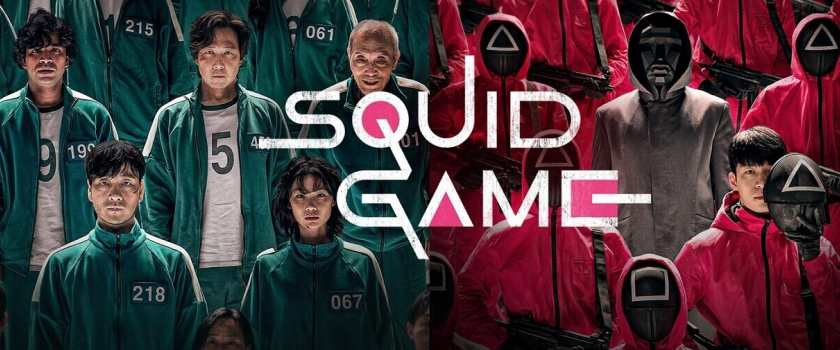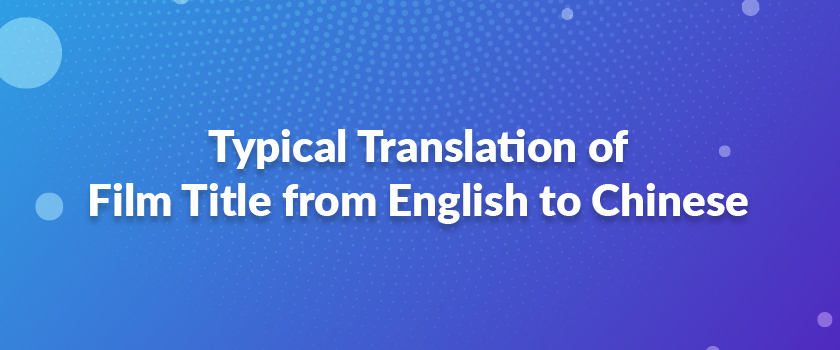Squid Game; Netflix’s Most-Watched Streaming Sensation
In the midst of numerous TV shows and motion pictures, very few have been able to capture the audiences’ attention as the Squid Game has.
A narration that often feels like a cross between the Hunger Games and Parasite, Netflix’s most-watched streaming sensation, is one of the latest South Korean cultural export.
An Honest Depiction Of Human Nature
The squid game portrays a bleak but honest depiction of human nature for greed in a time of crisis. Aspirants of a 39 million dollar prize are pitted against each other in a life and death scenario.
Since the time it first aired on Netflix, the violence, gore, and thrill of the show coupled with outstanding visuals have made it the number one TV series in over 90 plus states.
Candidates who succumbed at the hands of their debts have no choice but to indulge in classic children’s games like “Red light green light” and “Rope Tussle”. But still, the odds of winning the entire prize money are not favorable.
Squid Game’s Popularity
Nonetheless, the show’s popularity has sent ripples in the cultural fabrics. Festivities have adopted certain unique traits from the series. Events like Halloween have enabled people to make the famous masks worn by the security. Popular sites liken Amazon and Esty have witnessed unprecedented consumer traffic demanding the costumes worn by the contestants on the show.
And it does not stop here. One of the most popular language-learning applications is called “Duolingo” has witnessed a forty-five percent increase. This increase has especially come from US users who have developed an interest to learn the Korean language.
Attracting The Global Audiences
People are attracted to things that they have not seen or experienced before. In this day and age of globalization, it’s very difficult to surprise an audience. People are aware of what’s happening all around the world. So when something unique and distinctive comes up, it gains a lot of attention from the masses.
This attention often leads to multiple analytical approaches from social experts. And new dimensions of looking at an issue. An issue that was never meant to formulate, since the show was just an attempt to please and entertain an audience.
Children’s Games Dismantled Under The Veil Of Greed And Amusement
Lo and behold, the South Korean show has received a lot of backlashes as well. If we look at it from one perspective, the show is an allegory of the social issues prevalent in the society that we live in. There is an obvious economic inequality in the world and the show demonstrates that.
An immigrant without papers, an older people sick man, plus a financial expert, all are being used for the amusement of the rich. This depicts a true tale of almost every culture in the world. And is not just Korean-specific.
Nonetheless, the Squid game has made a lot of new fans of Korean culture. But there is still an issue that needs to be addressed. And the issue is that whether the show’s translation is more accurate in locally dubbed versions like Spanish or German or more nuanced in subtitles.
How Squid Game And Localization Captured Audiences
In this nine-episode fictional dystopian series, contestants who are swimming in debt and in need of money play deadly children’s games to win cash prizes. Localization And translation have played an integral part in Squid Game becoming the insatiable hit that it is worldwide. Without English subtitles, it wouldn’t be as popular.
Translation Enabled Higher Viewership
If it wasn’t for localization and translation, the Squid game would have never reached the level of popularity that it has.
The renowned TV series has been subtitled in over 30 plus languages. And dubbed in over 24 plus languages. If it hadn’t been for language translation services, people would’ve been unaware of the thrill that the show provoked.
Globalization; The Major Reason of Squid Games’ Success
There is no objection to the fact that globalization is the major cause for the global success of a movie or TV series. Localization enables the expansion of market audiences. It breaks the language barriers and bridges the gaps between different communities. Or in this case, it bridged the gap between the Korean film and drama industry and the rest of the movie industry.
Moreover, it opens the window to the cultural dynamics of society. For instance, the “squid game” is actually a children’s game in Korean culture. But It is not common among American or European children.
Translating Cultures
The issue of translating culture has always been an issue that persists in the process of localization. But when it comes to movie dubbing or captioning, your translations have to be accurate and precise.
If you succeed in this endeavor, as the Squid game did, the chances that your movie or TV show will be a global hit are significantly high.
Connecting With The Audience
If the movie is not able to connect with the audience, it’s probably because of an ineffective representation of symbols and concepts. Thereby, one cannot penetrate a foreign market without knowing the implications of every little cultural nuance or symbol on the target market.
The translation process needs to be perfect if the producers want their picture to be a masterpiece.
Until and unless the audience feels a connection with the storyline or with the characters, your mission is incomplete. Localizing movies will enable that connection. And will allow the viewers to follow the plot points from start to finish.
Curbing Offensive Content
One key aspect of the localization process is to refrain from using any offensive material that might instigate any sort of controversy or bad press. Moreover, the issue of censorship has to be dealt with care. And should always be made a priority before making any decision.
Meanwhile, it’s also imperative that you do not lose the opportunity to entertain your audience. The process of localization should embolden the entertainment part rather than hampering it.
Controversy Pertaining to Translation Amid Squid Game’s Global Success
Squid game’s popularity faced a hiccup when South Korea’s localization and translation industry raised an issue pertaining to the dubbing and captioning of the episodes.
The objection was that the present dubbed version was not able to grasp the tone of the dialogues. And in many instances it was over localized, hence ruining the essence of the context.
Over-Localization
The issue was raised by those Koreans who lived abroad but were fluent in the English language. They proclaimed that the dialogues were often altered so that they could be easily understood by the target audience. Meaning, the context was over-localized in order to increase adaptability.
This may be the right approach sometimes, but in often cases it dilutes the originality of the text.
Twisting The Identity Of Characters Vis-a-vis Dialogues
The process of translation actually twisted the identity of certain characters. They were not exactly what the captioned dialogues or dubbing advocated them to be.
Linguists stated that people were unable to relate to the characters because the dialogues were inconsistent and incongruent.
The Untranslatable
There are certain Korean words that cannot be exactly translated. The reason is that Korean Vocab carries a deeper penetration into the essence of its culture and traditions. One cannot substitute words or replace phrases. And then guarantee to deliver that same essence and soul of the culture. Hence, words with the nearest meanings are utilized.
Nonetheless, it did not affect the overall message of the TV series Squid Game.
Certain Translations Did not Do Justice To The Story line
Bilingual viewers argued on social media that the translation did not do justice to the lustrous script, an erudite discourse of the dialogues, and outstanding story line of the show. Indicating that if someone watched Squid Game in English, he actually missed the opportunity to experience the brilliance of the show.
The Arduous Task of Captioning
The complicated task subtitling cannot be understood until an individual can differentiate between interpretations and translation.
Translation is the straightforward process of converting words from one language to another. On the contrary, interpretation pertains to speaking the language.
Differentiating Translation And Interpretation
Captioning is difficult because it falls right in between these two processes. The person who is doing the task of captioning is prone to listen to the spoken language. Similar, to what an interpreter is doing. Hence, he just converts what her hears orally into the subtitle version for the consumers.
Thereby, linguists claim that not everyone can perform the task of captioning at a master level. And if the product is to be viewed by millions of people, simple knowledge would not be sufficient.
One needs to have a specific set of skills that enables him to convey the subject matter within the confined space of a screen.
Tackling The One-Inch Barrier Of Subtitles
The director of the academy award-winning movie once said,
“ Once you conquer the 1-inch tall barrier of subtitles, you will be introduced to many outstanding films.”
The purpose behind this statement is to promulgate the notion that no matter how difficult the process of captioning may be, one has to abbreviate the sentences within the restricted space of the picture screen.
Complications In The Light of Translating Cultural Terms
This process gets more complicated when translators have to interpret the cultural terms. And then translate them into words and sentences that can be condensed onto the screen. Plus convey the exact meanings as well.
As far as the Squid game is concerned, there are not many major issues. But inconsequential contortions found here and there. The wholesale quality of the translations is admirable.
Notwithstanding the quality of the English translation, the subtitles were ineffectual when it came to the deeper meaning, as it went, inexorable.
The Essence of The Relationship Between Ali and Sang Woo
Let’s discuss this notion via an example.
One of the episodes in the Squid game introduced us to a participant named Ali. A Pakistani immigrant living in South Korea. Ali meets another participant of the game named Sang Woo, who is one of the main characters of the show.
The Back Story
The back story portrayed Ali as a laborer working extremely hard to make ends meet. Whereas, Sang Woo is a genius financial guy who studied at the best university in Korea. However, his luck ran out when he embezzled a large sum of money.
Hyung
Lo and behold, both of these characters came very close in the show. Ali being a working-class citizen called Sang Woo “Hyung” which translates to “older brother”, instead of calling him “ Mr. Boss”, or “Mr. Company President”.
This denotes a very important social issue in South Korean culture. The working class of the society usually refers to their superior or the bourgeois as “Mr. Boss Man”.
Unavailability of Suitable Substitutes
On the contrary, we saw that Ali called him “Hyung” as per the request of Sang Woo. This moment of humanism was one of the most heartwarming events of the entire tv series. The pathos of this scene did not reach its zenith as there were no substitutes available in the English language.
Unfortunately, the English subtitles read as “Call me sang woo” in place of the line “ Call me Hyung”.
User Experience Suffered A Scarcity of Raw Emotions
Now the English viewers who watched Ali being betrayed by Sang Woo in the game of marbles did not experience one thing. And that was the intimate connotations associated with the word Hyung. Hence, their experience suffered a scarcity of raw emotions.
Conclusion
Conceptualizing the intricacies of the Korean words in the Squid game is imperative to apprehend the discontented ingredients of human correspondences.
Translations and interpretations are essential mediums to bridge gaps between communities speaking different languages. On the contrary, they can never satisfy the deeper nuances of culture and tradition. In order to do that, a deeper look into the soul of the culture is required.
Regurgitating the statement of Parasite’s director; once you imbue the gaps left by the untranslatable words and phrases, you will only not be able to deliver proper meanings but open windows into the true soul of the culture. And that is a worthy endeavor.



